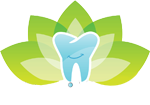How Long Does It Take For An Oral Surgeon To Extract A Tooth?
People undergo tooth extraction for different reasons. However, at Arlington Dental, our dentist in Toronto, ON will try their best to salvage your tooth as nothing can compare to a healthy natural tooth. This is why you should go for regular dental checkups to identify any issues in their early stages before the damage becomes extensive.
Reasons for Tooth Extraction
Although your permanent teeth are meant to last for eternity, there are several reasons why you may need a tooth extraction. A common cause is a tooth badly damaged by decay or trauma. Others include:
- Crowding In the Mouth: Sometimes, tooth extraction is performed to ready your mouth for orthodontia. Orthodontia aims at aligning the teeth, something that won’t be possible if they are too huge to fit in your mouth. Also, if a tooth doesn’t erupt through your gums because of lack of room, your dentist may recommend extracting it.
- Infection: Sometimes, tooth decay could extend to the pulp. This is the center of the tooth containing blood vessels and nerves. If this happens, bacteria from the mouth could enter the pulp and cause an infection. Typically, this can be remedied with root canal therapy, but if the infection is severe and resistant to antibiotics, extraction will be your best course of action to prevent the further spread of the infection.
- Risk of Infection: If you have a compromised immune system, the risk of infection in a tooth could be enough reason to extract the tooth. This is especially true among patients having an organ transplant or receiving chemotherapy. Also, periodontal disease causes loosening of your teeth, necessitating tooth extraction.
How Long Will a Tooth Extraction Take?
A typical tooth extraction procedure takes 3-15 minutes for one tooth, provided there are no complications. However, if you have more than one tooth extracted, each extra tooth could take an additional 3-15 minutes. Remember to consider the other steps in the extraction process, such as prepping, numbing, and recovery after the procedure.
Tooth Extraction Procedures
The type of tooth extraction procedure you opt for will depend on your circumstances. The most common tooth extraction procedures are:
Simple extraction: Your dentist will perform a simple extraction when the tooth in question is visible and devoid of cracks, chips, or breakages. During this procedure, the dentist loosens the tooth using a unique tool called an elevator. They will then remove it using forceps.
Surgical extraction: Surgical extractions might come in handy if you have an impacted tooth. An impacted tooth is a tooth that hasn’t come out when expected. It could also be a tooth that can’t erupt because of lack of enough room or a tooth that comes out in the wrong position or direction. During surgical extractions, your oral surgeon makes an incision in the gum line to remove the impacted tooth or fragment.
How Does Tooth Extraction Procedure Happen?
When you go in for oral maxillofacial surgery, a mild anesthetic will be administered to numb the region around your tooth. Once the anesthesia has kicked in and you are calmer, your dentist may begin performing the tooth extraction. Dental sedation could also be administered depending on the nature of the procedure.
Next, your dentist will loosen the tooth. Depending on your circumstances, this step could take anywhere between 10-30 minutes. After this, they will wash out the socket and close and protect it. This could involve removing unnecessary tissue, smoothing it out, and sealing the region with gauze and sutures.
In cases where you were administered a stronger anesthetic, you will have to wait for it to wear off before you can finally go home.
Post-extraction Care
After you’ve gone home for recovery, here are some tips to help ease discomfort and reduce the risk of infection:
- Take the prescribed painkillers
- Bite gently on the gauze pad to reduce bleeding and allow the formation of a blood clot in the tooth socket
- After extraction, place a pack of ice against the affected area to keep the swelling.
- Get some rest for at least 24 hours before getting back to your routine life
- Avoid smoking as it could slow down the healing process.
- Consume soft foods like yogurt, pudding, and soup. You can gradually add solid foods to your diet as you heal.
Oral Surgery in Toronto, ON
While salvaging your natural teeth is our priority, there is so much our dentists can do. Besides oral maxillofacial surgery, we offer other ranges of dentistry services. Do you have a severely damaged tooth that needs extraction? Visit us at Arlington Dental for oral surgery in Toronto, ON.

